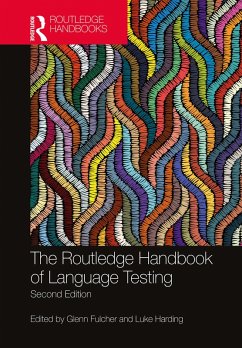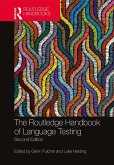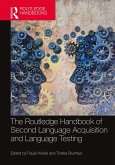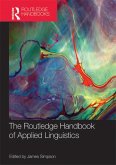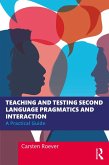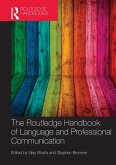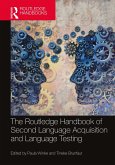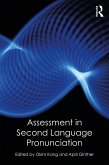Dieser Download kann aus rechtlichen Gründen nur mit Rechnungsadresse in A, B, BG, CY, CZ, D, DK, EW, E, FIN, F, GR, HR, H, IRL, I, LT, L, LR, M, NL, PL, P, R, S, SLO, SK ausgeliefert werden.
Hinweis: Dieser Artikel kann nur an eine deutsche Lieferadresse ausgeliefert werden.
Talia Isaacs, University College London, UK
'Editors Fulcher and Harding have invited leading researchers across the globe to identify critical issues in the field of language testing and assessment and to make predictions about its future. 36 chapters, covering philosophical, social and technical aspects of the discipline, offer thought-provoking reading for anyone engaging with language tests, whether as researcher, practitioner or policy-maker.'
Catherine Elder, University of Melbourne, Australia
Praise for the 1st edition:
'This thorough and comprehensive introduction to the practical and theoretical dimensions of language testing and assessment is set to become a standard reference. With chapters by leading international authorities in the field, it is both intellectually stimulating and practically useful, and is a must-read for those involved in language testing as test developers, test users, policy makers and researchers.'
Tim McNamara, The University of Melbourne, Australia
'I found this book to be the finest collection of cogent articles on language testing to date. The Handbook solidifies language testing as a discipline in its own right-one that has real-world impacts on society at large. Stimulating and clear, the articles will be a valuable resource for decades to come.'
Paula Winke, Michigan State University, USA
"In the collection of articles edited by Fulcher and Davidson, the editors have succeeded in assembling a set of contributors with an unparalleled level of expertise in their respective areas, and with distinctive talents in communication. The strength of this extremely well-edited collection lies in the interweaving of theoretical and practical aspects of language testing through nine broad themes, and in the structuring of individual contributions to provide a historical perspective, a discussion of current issues and contributions, and a consideration of future directions. The volume stands not only to have a wide impact on best practice in the field, but also in the development of language assessment literacy in other professionals who find themselves involved in activities of language assessment."
2016 SAGE/ILTA Book Award statement

